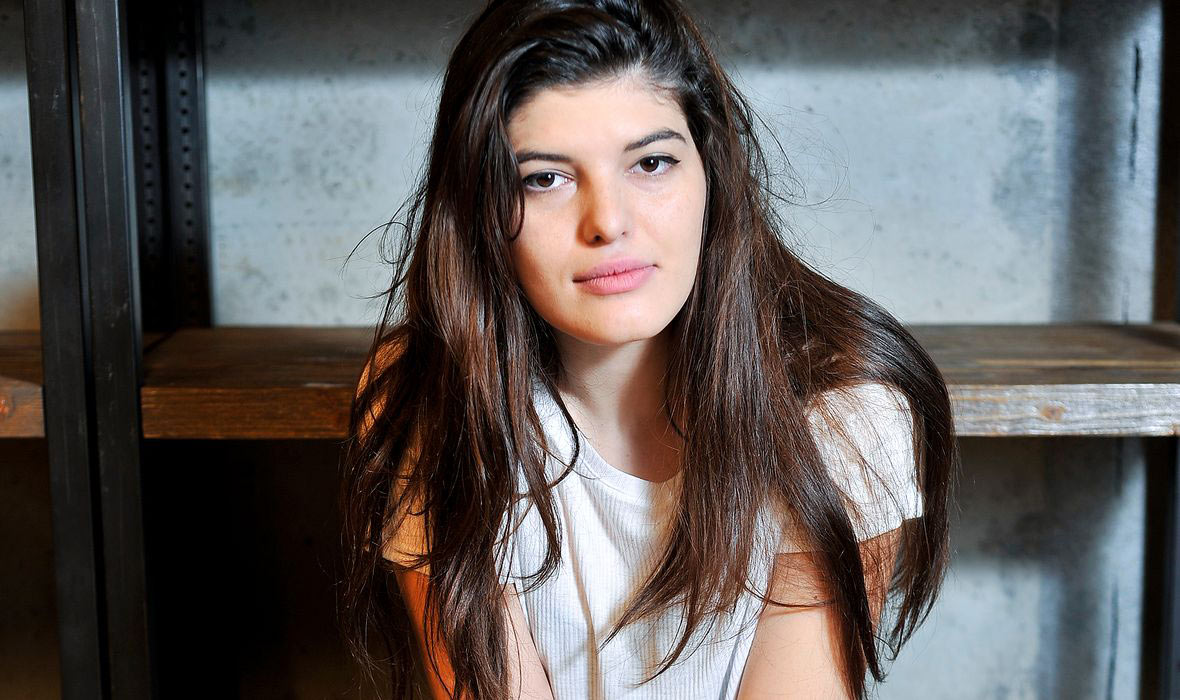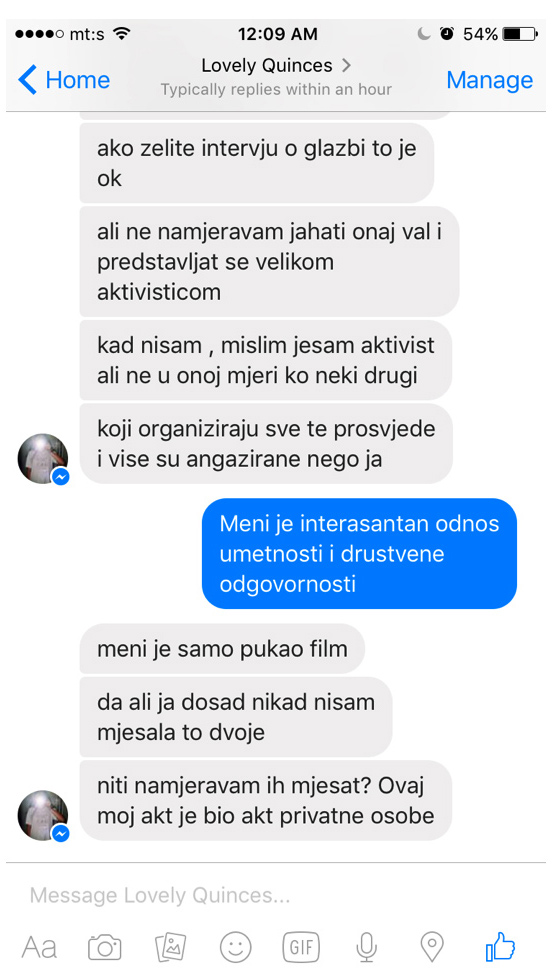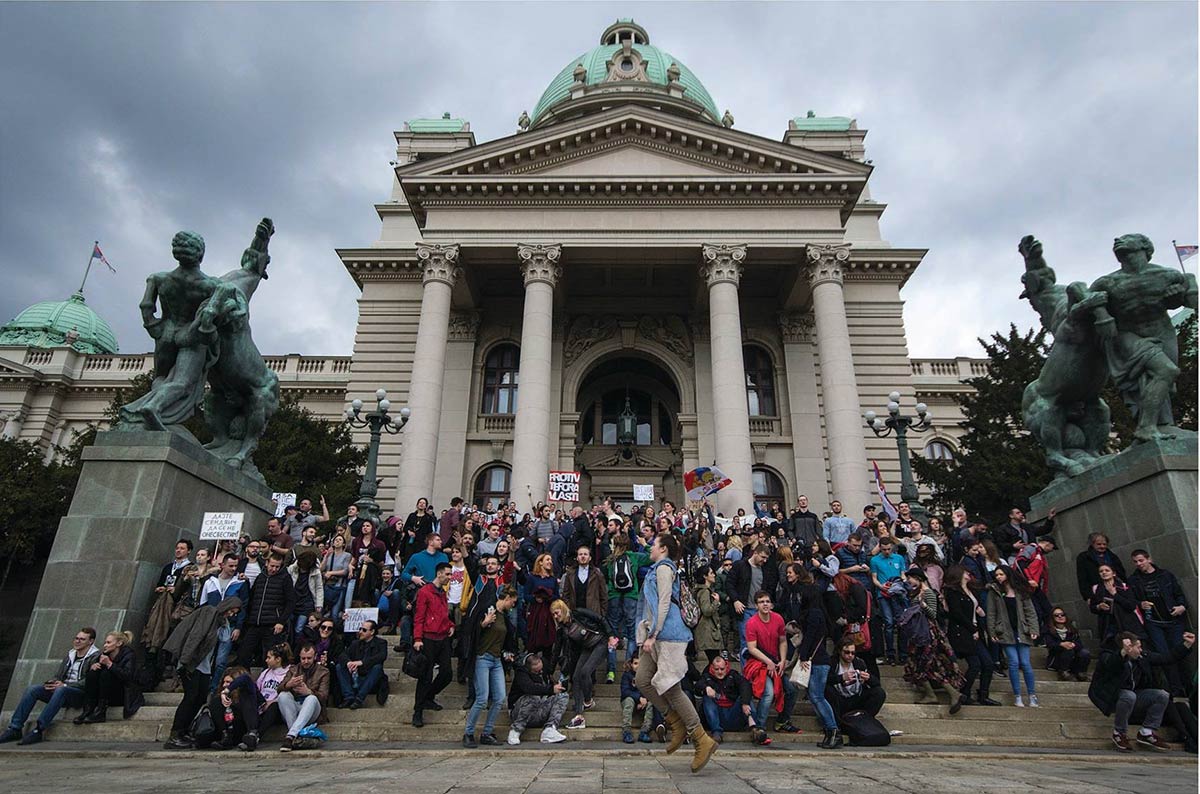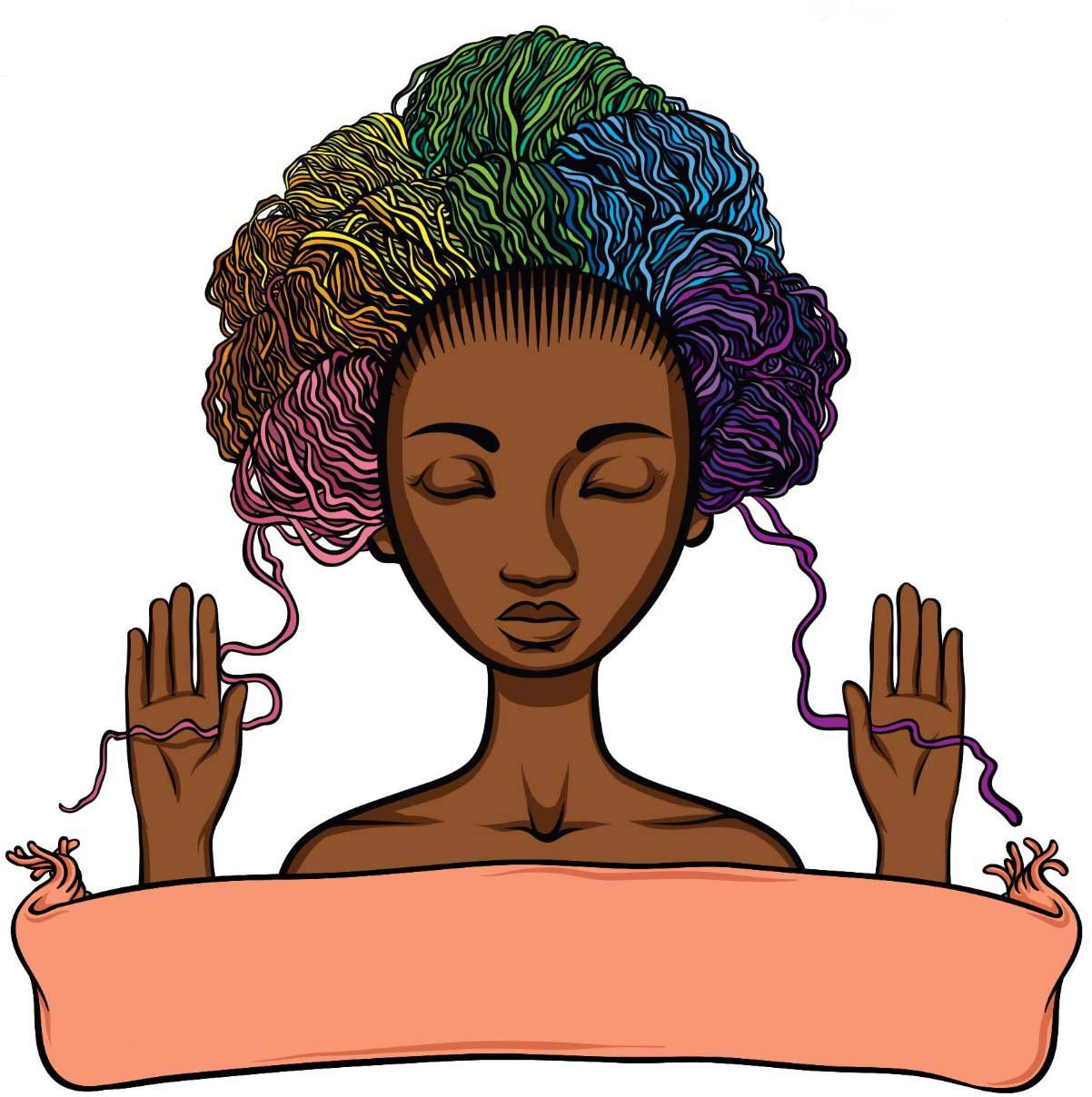
Lovely Quinces: Who’s the rebel here? Who’s standing up for European and Croatian laws?
A musician with a guitar stands in the way of “The Walk of Life”, a rally of 15.000 people looking to legally formalize the ban abortion in Croatia.
Pro-life rallies, no doubt fueled by religious dogma, are another threat of the conservative fascist force spreading throughout Europe. In Poland, the law was already passed. Not scary enough? Pro-lifers reason that this is humane, argumenting that Europe is being flooded by Arabs and other non-believers, that European nations will disappear altogether with declining fertility rates- while we’re making a fuss over freedom and human rights. There should be more Croats, more Poles…for the sake of higher reason, and this should be our national obligation, bound by law. This scares me, like those overgrown monsters from cartoons today, ghoulish and distorted, that make Maleficient look naive.
In front of this conniving monster- made of the darkest part of the church, state leverage, conservative intellectual elite, the deluded and naive- where they all unite in a zealous protection of unborn children and “walk for life” over the lives of others- stood Dunja. And another Dunja. And a few other women.
As in some well thought-out street performance, two young women, one carrying a guitar, stood in front of the monster and defended their little piece of freedom, their absolute right to choose. Ushers from “Walk of life” push, walk over them, whatever, and they are finally arrested by the police as rebels, causing public disorder. The two girls meet in jail- on is Dunja Ercegović- a musician known as Lovely Quinces, the other Dunja Janković, a painter. The Croatian media had all the elements to paint the picture of freedom as a scandal and leave it to the public to judge these brave young women as rebels or opportunists.
I Googled Lovely Quinces to find out she’s a very talented musician, whose last album, Meet me in Moscow Part I, was a finalist for Independent European Album of the Year. She’s young, talented, and very good at the guitar. I wanted to ask her if the guitar gave her a sort of power, if she’s aware of the growing responsibility she has as a musician who’s socially involved.
In a short chat with Lovely Quinces, it became clear Dunja is a hard nut to crack, unwilling to compromise, but a good girl throughout:

SCREENSHOT: Lovely Quinces: If you want to talk about music, that’s ok / But I’m not going to jump on that bandwagon and claim I’m some huge activist/ When I’m not, I mean I am an activist but definitely not as much as others/ Who organize all these protests and are much more involved than me. Milica: I think the relationship between social responsibility and art is interesting. Lovely Quinces: I just had enough/ I’ve never mixed those two together/ And I don’t intend to? This act was of me as a private person/
A couple of days later I saw her perform at Mikser Festival’s “Womenal”. She put on a great show- her voice and guitar, the energy, the strong emotion. Truly Womenal. I met her the day after at Berliner. She stormed in, out of breath, returning from a protest rally here in Belgrade -“Fuck, you guys are even better than us!”.
We spent two hours talking about different protests, feminism, arrests, the Parisian “Nuit debout”, ex-boyfriends, long hair (and cutting said long hair short)… The conversation touched upon all the reasons I believe in and love this area, the reasons I came back after a decade spent in Swiss abundance- young people who have the strength and wisdom to change the world, defend it from the monsters, wars, injustices, all the -isms that lead to misfortune and suffering. Using guitars, rallies , blank votes, sometimes revolutions- but never other peoples lives. These are the people I was once a part of and wanted to rejoin. Dunja convinced me that they were still there, not only in Belgrade but in Zagreb- from which I was reluctantly giving up on.
I found Dunja’s raison de vivre in a casual anecdote she mentioned while we were talking. Dunja, who doesn’t strike me as “nerdy”, is quite a diligent student of Communications in Zagreb. At one exam, the professor gave her a set of three questions, to which she gave three meager answers. She received an average grade. Dunja stood up and said: “ASK ME MORE!”
Shocked, the professor asked her more questions, finding out what she doesn’t know and finally failing her. If she had failed her on purpose, because she saw the whole incident as an attack to her authority, or if Dunja was really worth failing- doesn’t really matter. It didn’t matter to Dunja either.Ask me more, Dunja’s request for fair play, for respect, dignity, or simply for the right to prove herself. She did not settle for an average grade- it was all or nothing, I either know or I don’t. Dunja was called out by her peers later on- a nerd, a suck up, or again, a rebel.
She laughed as she told me this story, and I got the answer to my question, about the relationship between art and activism. “Ask me more” is Dunja’s request to constantly raise the bar- social responsibility included.
And Lovely Quinces is here to remind us, when we least expect it.
Legal frameworks
Roman law from 1532. sentenced women who had an intentional abortion to death. Laws and countries changed, but death or lifelong prison sentences for women remained for centuries.
The legalization of abortion in European countries began in the early 20th century, first in the Soviet Union (1919), Iceland(1935), (Sweden (1935). In Yugoslavia, a “permissible termination of pregnancy” was legalized in 1952.
Health measures and rights on freely deciding to have children were adopted in Yugoslavia in 1978. and are still active in most successor states.
The law states that an abortion may be performed in the first ten weeks of conception. Later abortions require committee approval, and must be done under conditions and procedures determined by the law.
Vulnerability from wars and extremely low natality rates, as well as a wave of Catholic ideas, resulted in attempts to change the “liberal” legal provisions on abortion in Croatia.
However, no changes have been made to date.
The current law recognizes a woman’s right to freely decide on having children, including when and how many times she will give birth. It is considered a basic human right and part of the laws concerning reproductive rights , which include the right to prevent unwanted pregnancies, and providing medical assistance to those who, for medical reasons, cannot carry out a pregnancy.

Milica's questionnaire
DUNJA ERCEGOVIĆ

Play the music




